Why Speech and Debate Matters: Part 4
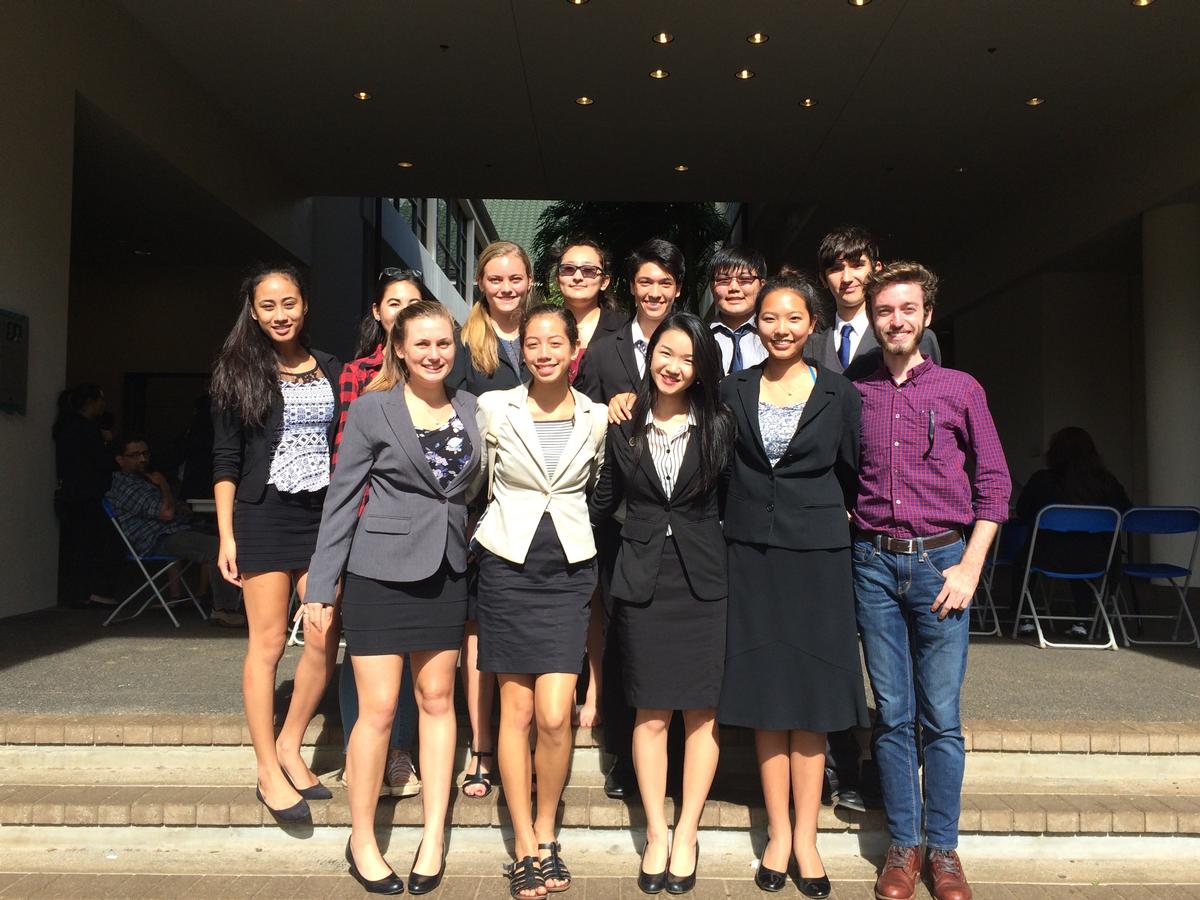
Why Speech and Debate Matters: Part 4
Written by Rachel Leong, Class of 2016
Ralph Waldo Emerson once said,
“Speech is power, speech is to persuade, to convert, to compel.”
I was terrified to take Speech and Debate. My heart leapt out of my chest, my knees would shake, and my palms would perspire every time I thought about it. A required class that involved arguing competitively? No thank you. Politics? That scares me. Waltzing around in suits in Hawai’i humidity? Hello, stress sweat.
However, once I got past my first tournament in Junior Varsity (JV) Policy discussing economic engagement with Cuba and medical tourism, I realized professional arguing was not as terrifying as I thought it would be. A few laughs here and there from not understanding political terms and pretending like I did made the process not only educational, but lighthearted and fun. From that memorable first round saying, “It’s for the children” multiple times in my concluding speech, I grew and was massively pushed out of my comfort zone all the way to the state tournament in JV Policy in my sophomore year of high school. After one year in debate, I tried my hand at the speech side of the forensics world and fell in love.
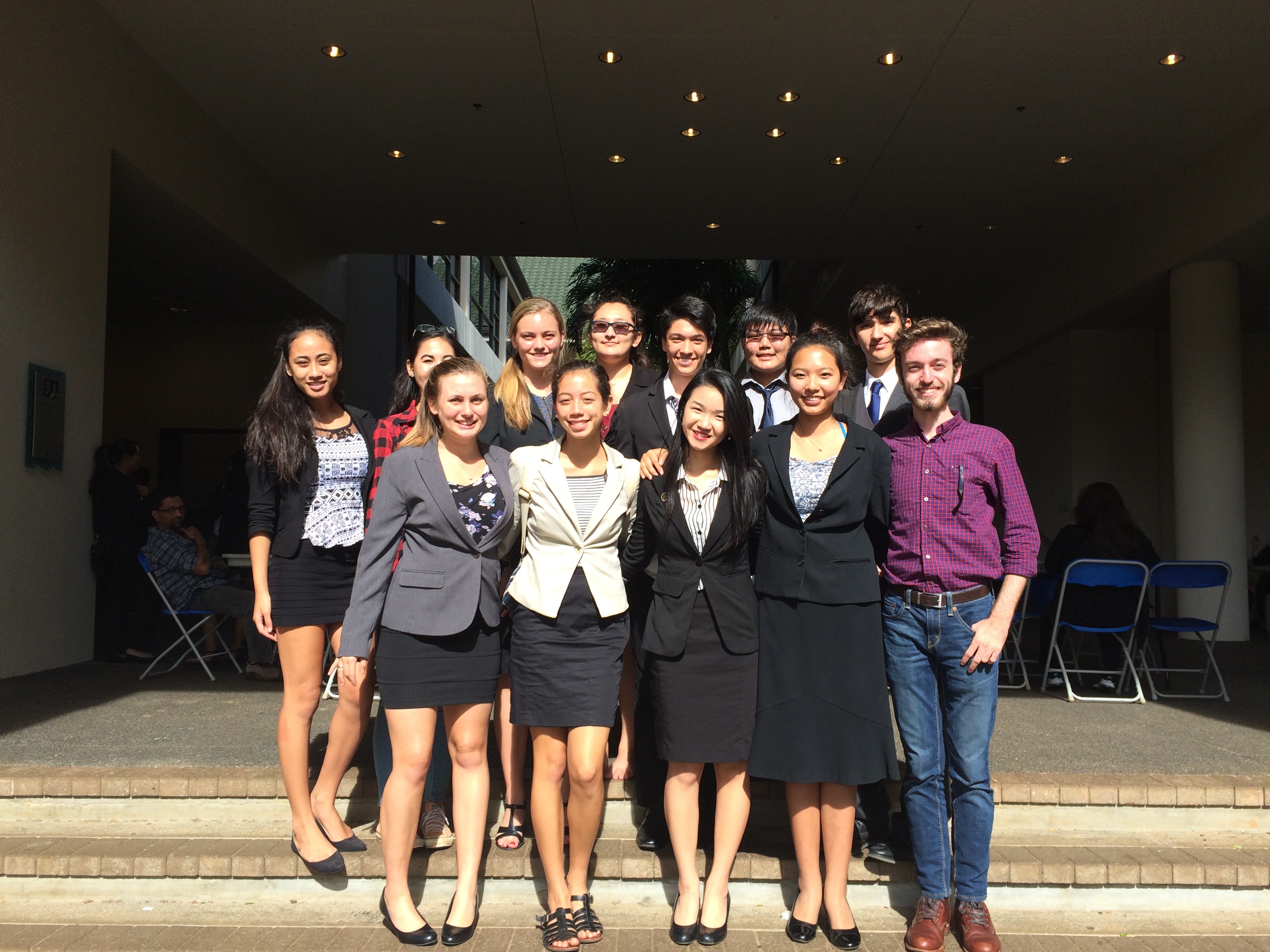
I competed in Dramatic Interpretation (DI), Humorous Interpretation (HI), Duo Interpretation (DUO), and Original Oratory (OO). These categories allowed me to play writer, director, choreographer, and actress all in one, with all the creative liberties I could dream of. Speeches ranged from acting out “Bridge to Terabithia” (DUO), to a consolidated version of my senior thesis (OO), to my Nationally-successful piece discussing “Society’s Lack of Authenticity and Fear of Vulnerability” (OO). I felt like I could convey whatever message I wanted to, in the exact way I wanted to. I could curate a piece that was mine.
Needless to say, I was completely hooked for my last two years in high school.
When I became immersed in speech, my aim was to put my entire heart into every single tournament and get that trophy. As the tournaments progressed, I was met with a different reason than success. My coach discussed with me how I was representing not just the school, but the morals and values of a Christian in a secular league. The way I was competing was not the traditional way to succeed in the NSDA, but regardless, I was doing well. I chose to refine skill, content, and wit rather than falling prey to the flash, crass, and cliché that was so easy to win with. I refrained from using any profanity or crude language in a category that thrives on that for success. This shocked multitudes of people who knew that Humorous Interpretation was not a category for many who proclaimed to be Christians. And through God’s will, I won the State title and competed in Nationals with a completely clean piece. Getting that far did not make logical sense. This was when I knew I was a part of something that was out of my control. I began to understand that my skills and abilities brought me to a platform where my role was larger than just little ole’ me.
While my knees still shook and my palms still sweat, I knew that the Lord would speak through however I performed. Terror became a trust in an understanding that this was what I was supposed to say, to this audience, at this moment. Junior year, I won 1st place in Humorous Interpretation, qualified for Nationals and 4th in Dramatic Interpretation. My senior year, I won 2nd in Original Oratory, qualified for Nationals, 3rd in Duo Interpretation and the District Student of the Year Award. While these titles can seem impressive, from the beginning I had learned that nothing I achieved was due to my own abilities. God was using my achievements as a platform for His light and His love.
"I began to understand that my skills and abilities brought me to a platform where my role was larger than just little ole’ me."
It was all for one goal. To embody, speak, and live out the values of Jesus in an otherwise obsessive, achievement-driven world—to speak truth in love (Eph. 4:15). Specifically, in Original Oratory, I found the Lord using me as a vessel for His truth. I worked hard, yes, but I knew that I had to do what He was leading me to do. I made it to the Top 60 in the nation in Oratory. Why? I wholeheartedly believe it is because the people in each of my rounds, leading up to that final room, needed to hear the words the Lord spoke through my mouth.

Fast forward to being a college sophomore, and I am no longer competing in Speech and Debate. Currently I am studying Organizational Communication, minoring in Sociology, and working as an Educational Programs Intern in the Intercultural Life Department, advocating for justice in faith, specifically in areas of racial reconciliation. I invested myself in these areas after seeing the empowerment of young leaders in the NSDA. These were world changers, 16- and 17- year olds, who were starting organizations advocating for women of color, those differently-abled, women in STEM fields, men not fitting the societal masculine mold, the hurt, the oppressed, the poor, the people God calls Christians to intentionally work on loving well. I garnered a heart for the marginalized and oppressed after the Lord “broke my heart for what broke His,” to speak out and remind followers of Christ that loving others does not mean avoidance of the hard and uncomfortable.
"I wholeheartedly believe it is because the people in each of my rounds,
leading up to that final room, needed to hear the words
the Lord spoke through my mouth."
On a daily basis, I use the skills I learned during my time in speech and debate for almost everything. Every speech I give with ease, every controversial conversation I think through cautiously and have the confidence to discuss it came from the long nights of drilling facts into my head, memorization and after-school meetings. Debate gave me the mindset and critical thinking to thoroughly examine life issues, instead of blindly believing everything I hear. Speech gave me a voice to speak out and stand for what I believe in. I would not, I repeat, would not be in this position if I did not have the confidence and tools Speech and Debate gave me.
Just like the characters in The Wizard of Oz, I feel like I gained a heart, brain, courage, and a home. Speech and Debate was by far one of my most favorite memories in high school, and equipped me best for taking on the world.
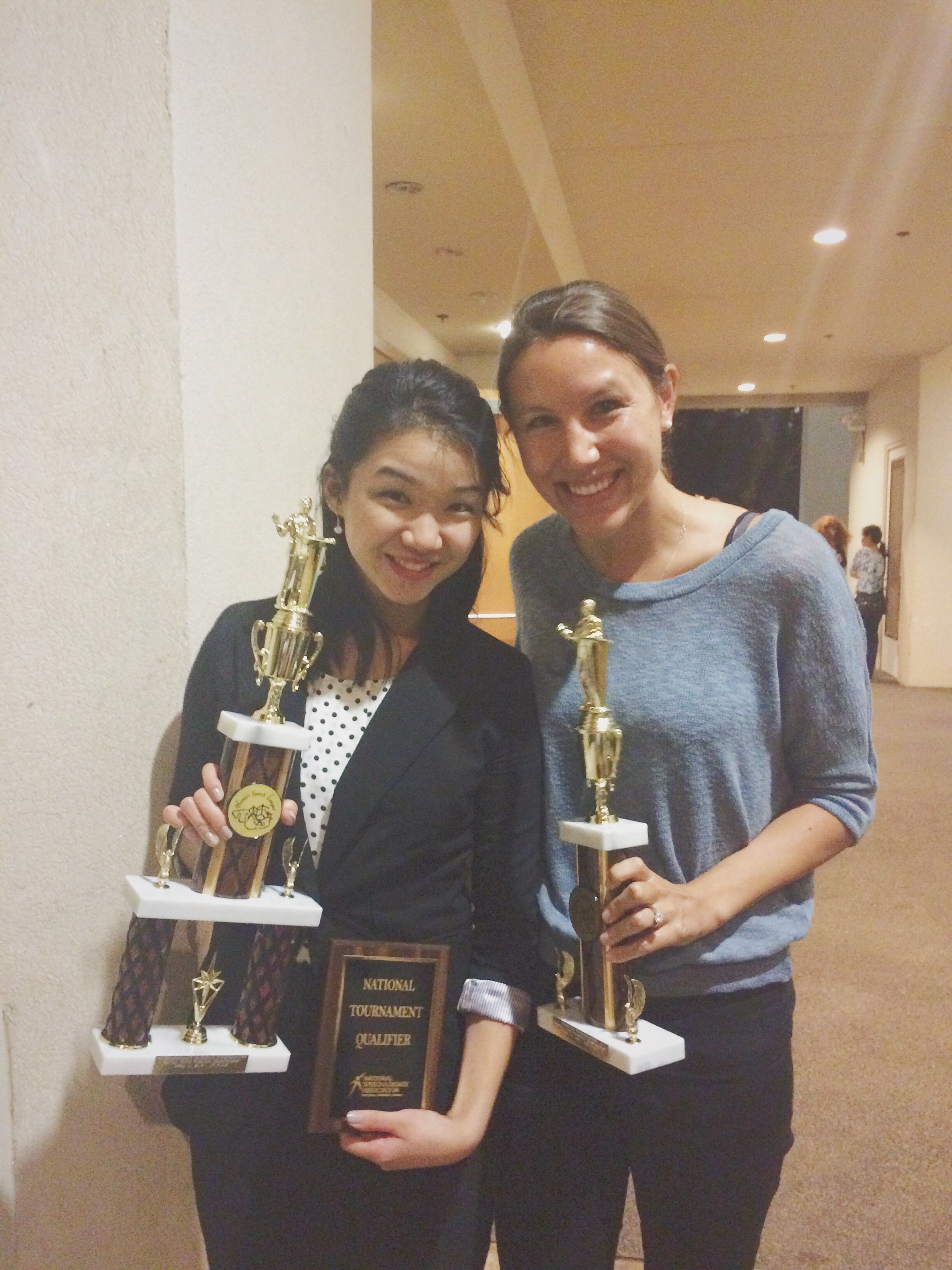
I will always be an advocate for the values and experience that speech and debate cultivates in students, and I believe that every high schooler will reap more than they realize. Everything that I have accomplished, every plaque, every trophy, every ballot—I attribute it all the Creator who has formed me exactly in this way for the purposes of furthering His Kingdom. His instilling of passions and abilities is only using me as a vessel and testament to His goodness.
“Now to him who is able to do immeasurably more than all we ask or imagine, according to his power that is at work within us, to him be glory in the church and in Christ Jesus throughout all generations, for ever and ever! Amen.” —Ephesians 3:20-21
A Class of 2016 alumna, Rachel Leong attended Trinity starting in 2008. Now in her second year at George Fox University, Rachel is an Organizational Communications major and Sociology minor. In the future, she hopes to possibly start a Christian non-profit or get her PhD in anticipation of being a Professor in Intercultural Studies (and own a dachshund).
Why Speech and Debate Matters: Part 3
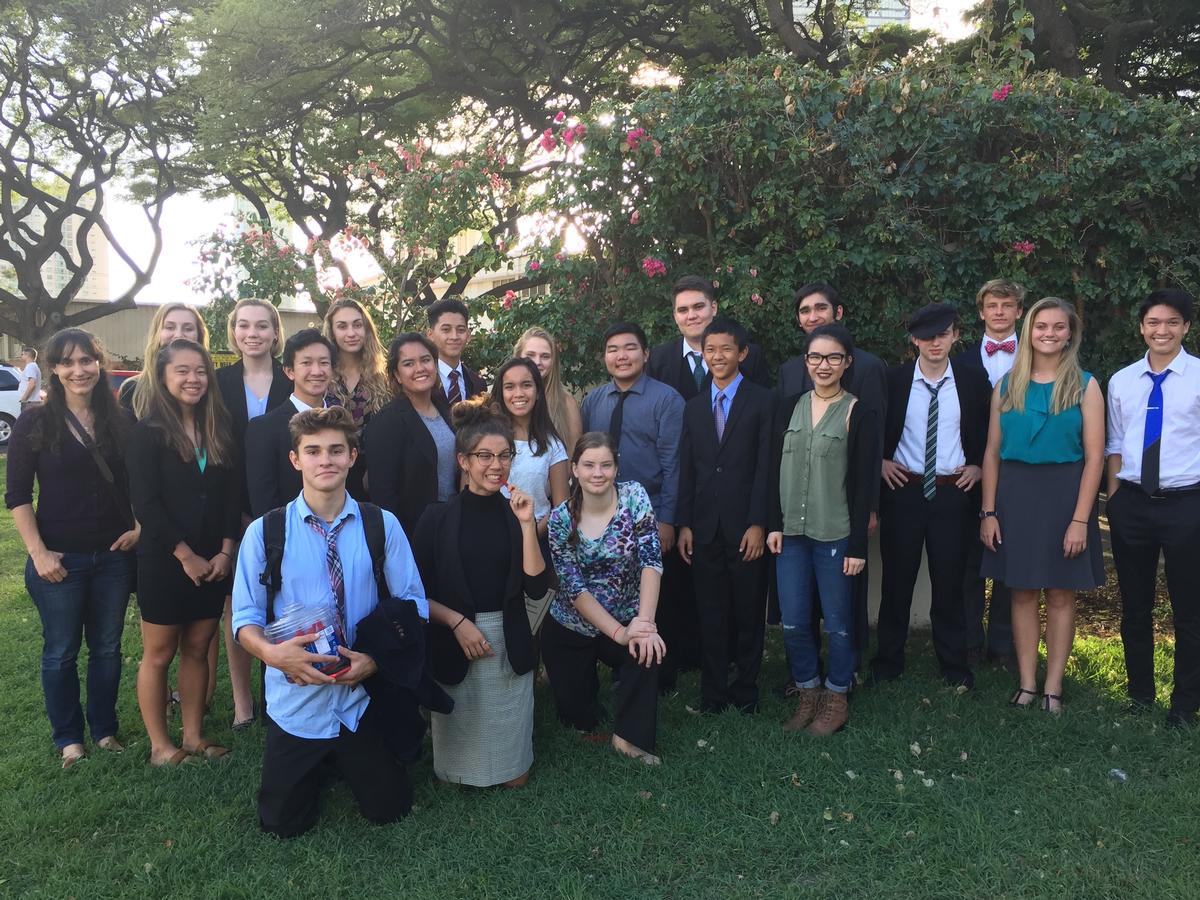
Why Speech and Debate Matters, Part 3
By Joshua Hu, Class of 2017
Six hundred college students pack into a large auditorium. Talking ensues but halts when a spokesperson yells an announcement through a microphone. Suddenly two hundred and fifty team names shuffle down a projector screen in rows of four with room names and team positions. Everyone frantically jots down their necessary info, then takes out their phones to take a picture of the new debate motion which appears on the screen. This round is focused on international relations. After fifteen minutes of talking, scrambling to find your room, and formulating arguments using only your mind, perhaps a paper dictionary, and an almanac, the debates begin. Judges render decisions, then the whole deal repeats with new topics every round.
This will be the scene next month as public and private colleges and universities across America, most notably Harvard, Princeton, and Yale, come together to compete in the US Universities Debating Championship (USUDC) in Stanford, CA. Debates will be held in the “British Parliamentary” format, modeled after the British House of Commons. In this format used by universities around the world, four teams of two (two government and two opposition) debate on a unique topic each round. I am extremely fortunate to be able to represent the University of Hawaii nationally as well as internationally as I go through college.
“Why debate?” is a question many parents and students may ask themselves as they see that debate is a required part of the Trinity curriculum. And it’s a question I consider before, during, and after each tournament I compete in. After four years of debate in high school, why do I coach high schoolers across America? Why do I continue debating in college? I debate because I enjoy the skills I gain regardless of win or loss, the friendships I am able to make with others, opportunities to travel, and the passion I have for discussing these issues.
Why Debate?
The most obvious benefit one gains from participating in debate is improvement in one’s confidence and abilities to speak in front of an audience. Not only does this prepare one for the TCS senior thesis and success in life in general, but as Christians, it better equips students to confidently face others and “give an answer for the hope that is within us” (1 Peter 3:16). But debate is much more than that, and matters because it teaches decision-making, empathy, and fosters the pursuit of truth—which students today dearly need—in a way that no other activity can.
Debate teaches decision-making in numerous ways. In an age where we are bombarded more than ever before with contrasting information and opinions, debate requires that students examine the reliability of sources that arguments are built on. When two PhDs give completely conflicting explanations, students cannot say that “both are 100% right,” but are forced to look at the reasoning behind the explanations, and decide which (if either) argument is true, or at least more true. Debate forces students to slow down in their lives and think about how people, societies, and governments make decisions, and what the most important goals or interests of those high-stakes decisions are. Not only do students become more aware of their own decisions, but of others’ decisions that influence how we live today.
At the same time that debate teaches logical thinking, it teaches empathy as well. People are emotional creatures, and the way a message is expressed is often just as important as the message itself. How can I communicate and persuade a mom, a grandparent, a professor, a college student? How do they think and what do they value? Who is affected by this debate topic, and how can I make these situations real and pertinent to my audience? How can I not just speak about a conflict, but speak on behalf of a group facing harm or needing aid? Successful communicators understand their audiences’ biases, but don’t compromise. They start on common ground and move forward with their opinions. This is only possible when we have empathy and can place ourselves in the shoes of another. Such empathy requires one to step out of a self-centered mindset, and value others above oneself, something Christ called us all to do in love.
At the same time that debate teaches logical thinking, it teaches empathy as well. People are emotional creatures, and the way a message is expressed is often just as important as the message itself.
How can I communicate and persuade a mom, a grandparent, a professor, a college student?
How do they think and what do they value?
Most fundamentally, debate occurs because it fosters the pursuit of Truth. Debate has the power to allow one to bring or take one from the Truth, and it is the reason why this tool is so precious, yet dangerous. Too often, especially on college campuses, opinions are censored because they are seen as “hateful” or “improper.” The spirit of debate condemns this perspective and says that every person’s perspective is worthy of consideration, no matter how vile that speech may be. If one believes in falsehoods and is convinced otherwise through debate, as the philosopher John Stuart Mill noted, that person has the benefit of exchanging error for Truth. But if someone spews vile falsehoods, debate and discourse can occur to snuff out those beliefs and strengthen the Truth.
The world will never get everything right. The Apostle Paul wrote in his letter to the Romans that man “exchanged the truth about God for a lie, and worshiped and served created things rather than the Creator—who is forever praised” (Rom. 1:25). Discourse and debate may bring others to the truth in some cases, but in many others, may lead one down the wrong direction, blinded by lies and sin. In a fallen world, speech allows us as Christians to bring attention to the needs of others and to guide others toward the Good, True, and Beautiful. If we fail to express the importance of Truth, in word and in deed, how can we witness to the world, how will things change? And if we fail to do so in love, why will others heed our call?
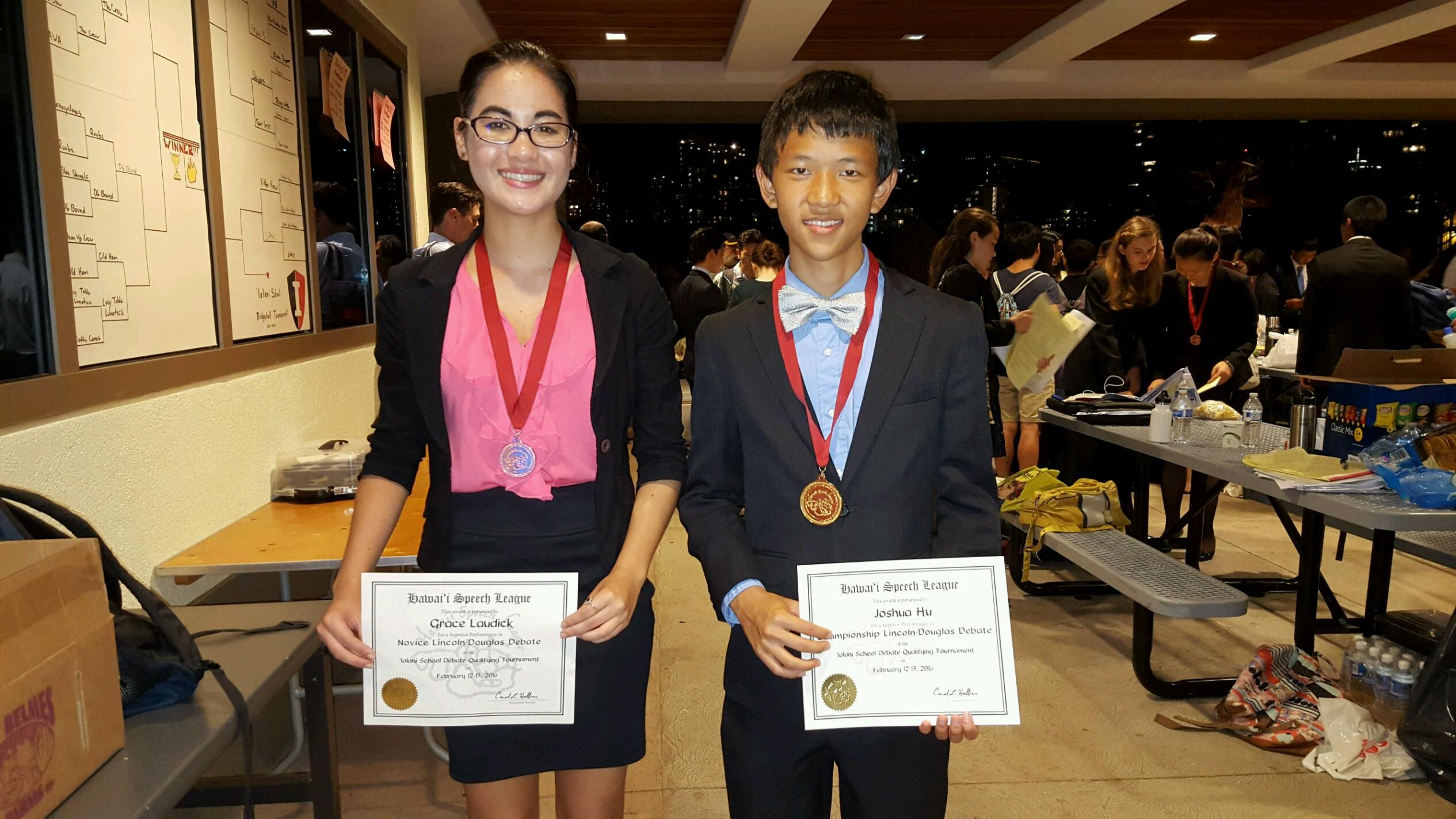 I initially joined Speech and Debate because my good friend Bobby Treakle (’14) was captain at the time, and because I had heard that Dr. Laurie Wilson (then my Latin teacher) was a great coach, and it sounded like a fun team to join. I absolutely did not like public speaking when I joined but as time went on my fears eased and I gained a love for discussing issues and debating—to this day, I enjoy the opportunities to speak and share my beliefs with others.
I initially joined Speech and Debate because my good friend Bobby Treakle (’14) was captain at the time, and because I had heard that Dr. Laurie Wilson (then my Latin teacher) was a great coach, and it sounded like a fun team to join. I absolutely did not like public speaking when I joined but as time went on my fears eased and I gained a love for discussing issues and debating—to this day, I enjoy the opportunities to speak and share my beliefs with others.
As I look back on my time in high school, Speech and Debate has been one of the most influential activities I have been a part of—it’s given me a job, an ability to travel and meet others, and it’s shaped my interest in the world and what I’d like to pursue for a career.
Not everyone will enjoy debate, but like any class, there’s always something for everyone to learn, for everyone to take away. If you’re reading this article, students, go in with an open mind, and learn what you can. The world needs more people who are confident enough to think well, speak Truth, and proclaim the Gospel.
Two hundred and fifty teams will compete at Stanford USUDC 2018, but only one will walk away as champion. Regardless of the result I will continue to debate because I know its value is not in mere victory. It’s in being equipped to speak the Truth with boldness and confidence in love.
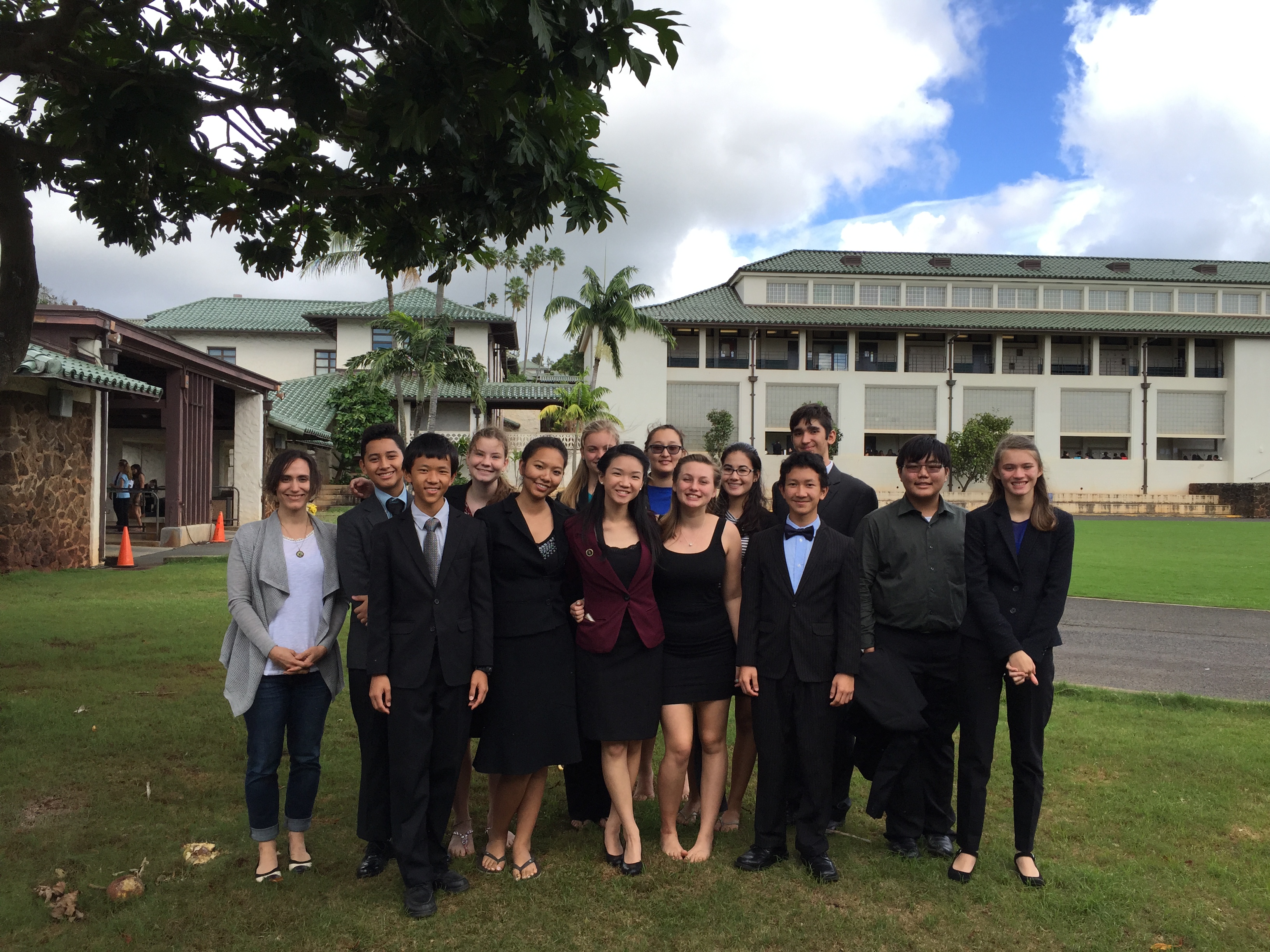
Joshua Hu is a Class of 2017 alumnus who attended Trinity from preschool to 5th grade, and then again from 8th to 12th grade. During his time at Trinity, Josh competed in Policy and Lincoln-Douglas debate formats, winning the Hawaii Speech League State Tournament three times, earning bids to compete at the 2015 National Tournament in Dallas, Texas with Hannah Goda (’15) and the 2017 National Tournament in Birmingham, Alabama. Now a freshman at the University of Hawaii at Mānoa, Josh is majoring in Business and Economics, with plans to pursue a law degree after undergraduate studies.
Why Speech and Debate Matters: Part 2
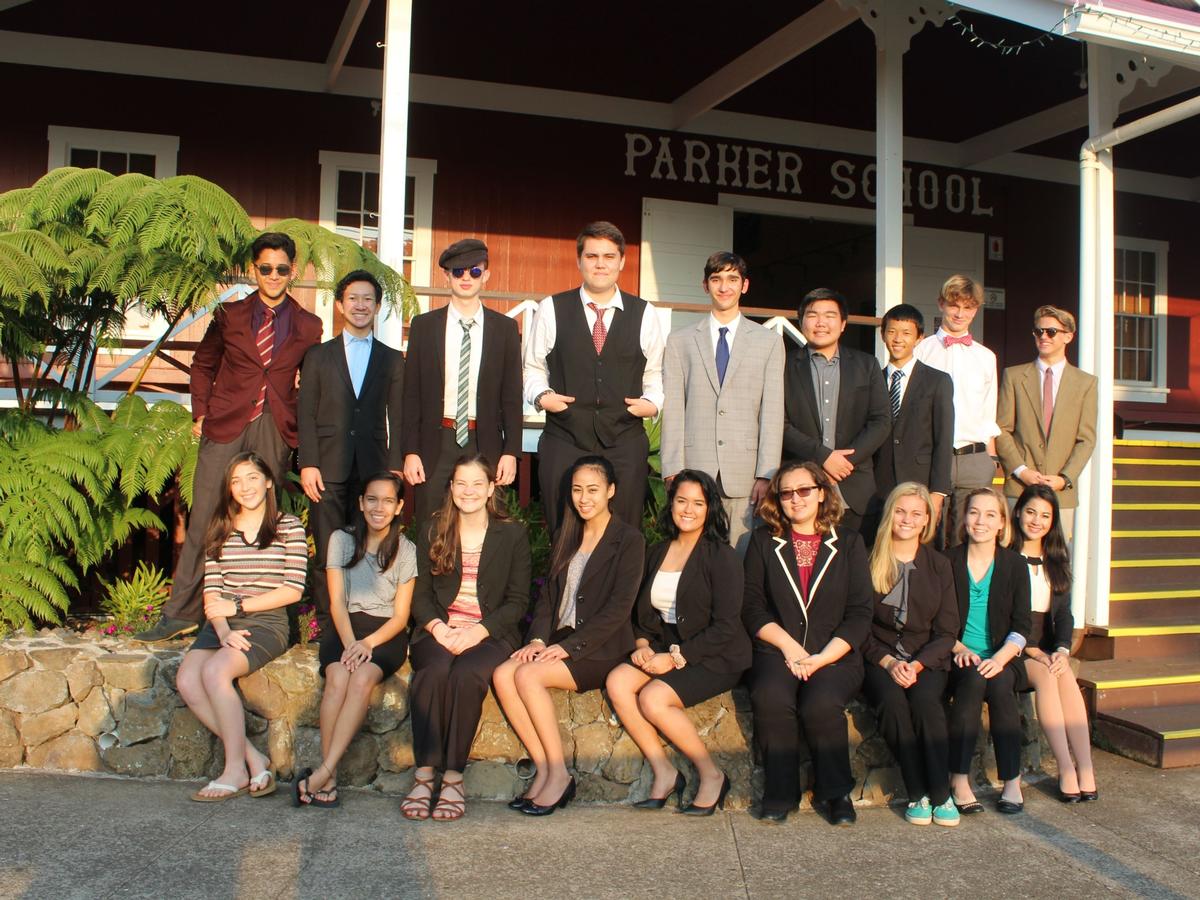
Why Speech and Debate Matters: Part 2
By Danielle Schum, '17
As a middle schooler at Trinity, I knew that I was eventually going to have to take Trinity's Speech and Debate elective and I didn't really know what it meant. Also, the only view I had received of the class was not particularly exciting view because it wasn't people's favorite class. Towards the end of my eighth-grade year, our former speech and debate coach asked students to volunteer to time keep for the rounds of the state tournament. I watched some of our alumni compete and it inspired me to want to join. I stuck with the Speech and Debate team for four years because I loved the platform of being able to express my ideas in rational ways and look at important issues from all sides.
My first year in Debate I participated in Junior Varsity Policy Debate and it was a quite an adventure. Our topic was whether or not the US Federal Government should increase economic and/or diplomatic engagement with Cuba, Mexico, or Venezuela. Competitors in this category must write a case to provide a solution to the resolution including an issue that needs to be solved within the topic, a well-researched achievable plan, and advantages to their particular plan. In addition, they must also be well-researched to refute other teams' plans and show logic to prove and connect their evidence. For the next three years I advanced to Varsity Policy and gained a very strong work ethic and persistent will. In my junior year at Trinity, I finally dipped into the speech side with Humorous Interpretation (HI) and was instantly connected. HI was my favorite category and I competed in it for two years. I also tried Original Oratory and Congressional Debate and wish that I had more time to explore those categories.
"I stuck with the Speech and Debate team for four years because I loved the platform of being able to express my ideas in rational ways and look at important issues from all sides."
I qualified to the Hawaii State Speech and Debate Tournament once in Junior Varsity Policy and once in Humorous Interpretation. Every year that I participated in debate, I attended the Big Island Tournament at Parker School and that tournament is so helpful for team bonding. With a closer team, students compete better.
‘Inside Out’, Humorous Interpretation Speech, Danielle Schum from WE Media Services on Vimeo.
I always knew I wanted to stick with Speech and Debate both out of love for it and because I discovered scholarships for it. I've been competing on the Concordia Irvine Speech Team for a year and it has been one of the best growing experiences I have had in college. My teammates are all such amazing speakers and inspire me to do better in addition to helping me get better. At the collegiate level there are way more tournaments than on the high school circuit and each one is an opportunity to qualify to the National Tournament. In short, the stakes are always high and the competition is fierce. I took freshman year to be a learning year, but next year, I'm prepared to bring the fire from day one.
"I took freshman year to be a learning year, but next year,
I'm prepared to bring the fire from day one."
So far, I have competed in two categories that are both similar to Original Oratory. In high school, Original Oratory is a research speech that students write themselves on topic of their choice. In college there are different variations of that. One is called an Informative Platform in which the speaker writes an original research speech to inform the audience about just about anything. The second is After-Dinner-Speaking (ADS) which is basically an Oratory filled with jokes. In April I will be attending the American Forensics Association National Tournament with my Informative Platform speech and the honor of attending is huge for me. The fact that I have this opportunity as a freshman fills me with gratitude. Beyond participating in college-level speech and debate, having the confidence to speak has exponentially lightened a lot of the stress that can come with college classes because of the skill sets I gained while competing, from researching to presentation.
It's also one of those activities that empowers you in life even after you've finished competing. If I choose to be an actor or director in theatre, I will be well-spoken and be able to do character research and analysis easily. If I choose to be a teacher, I will surely encourage my students to get more comfortable with speaking if I don't end up as a speech and debate team coach. Not only that, but I'll be able to communicate well with my students and accurately explain the various sides to issues. More broadly, as a citizen, I think that speech and debate can greatly impact people to be well rounded members of their community. They'll be able to see both sides to the arguments and communicate well in society. I would strongly advocate incorporating speech and debate programs into high schools for those reasons because I have seen those benefits play out in my life and my teammates.
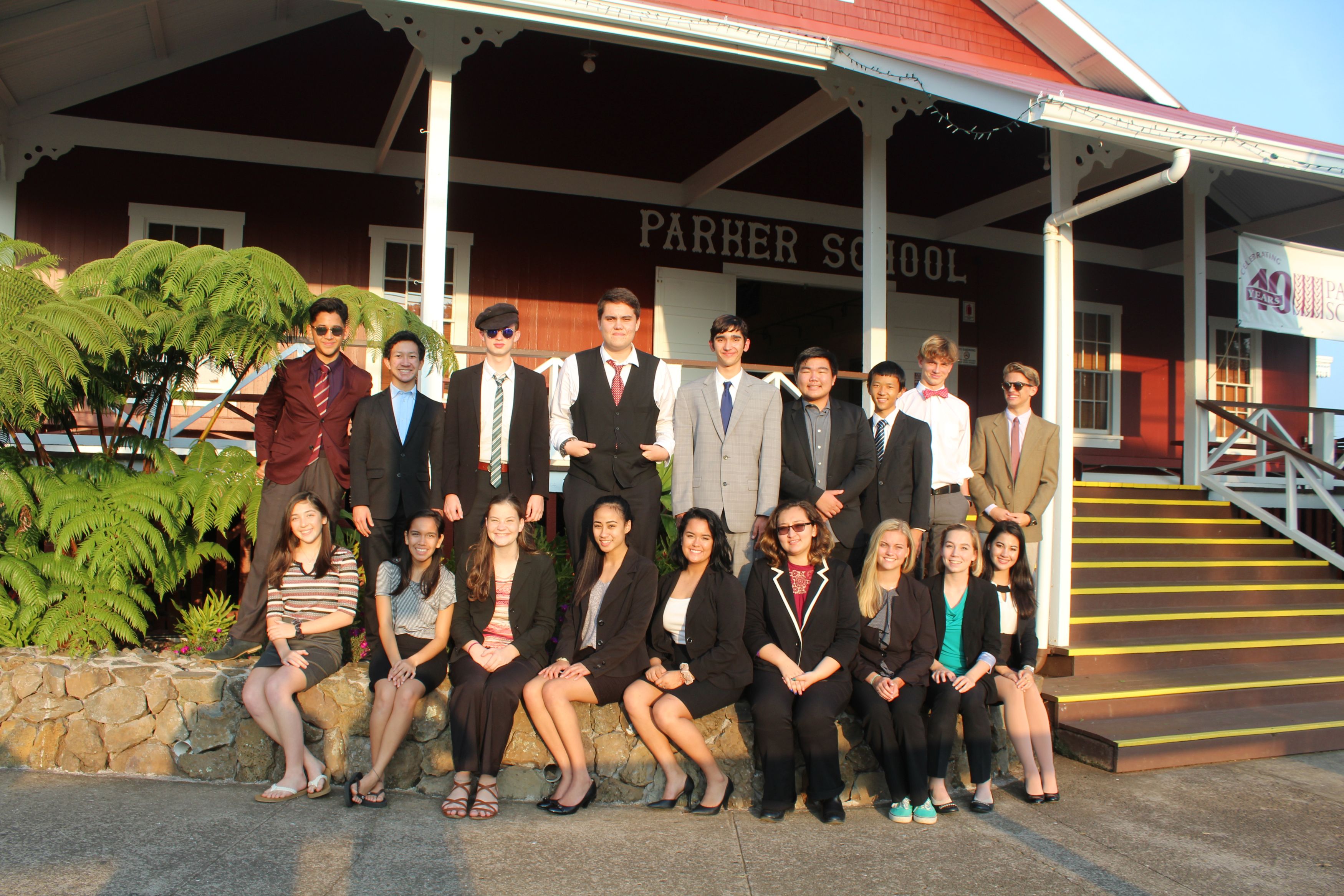
Danielle is a Class of 2017 alumna who started at Trinity in 2010. Now she is finishing her freshman year at Concordia University Irvine. Danielle is double majoring in Theatre with an acting/directing emphasis and History while also getting her teaching credential. In the future she hopes to be a high school history teacher, find a job acting or directing, or a combo of it all.
Why Trinity?
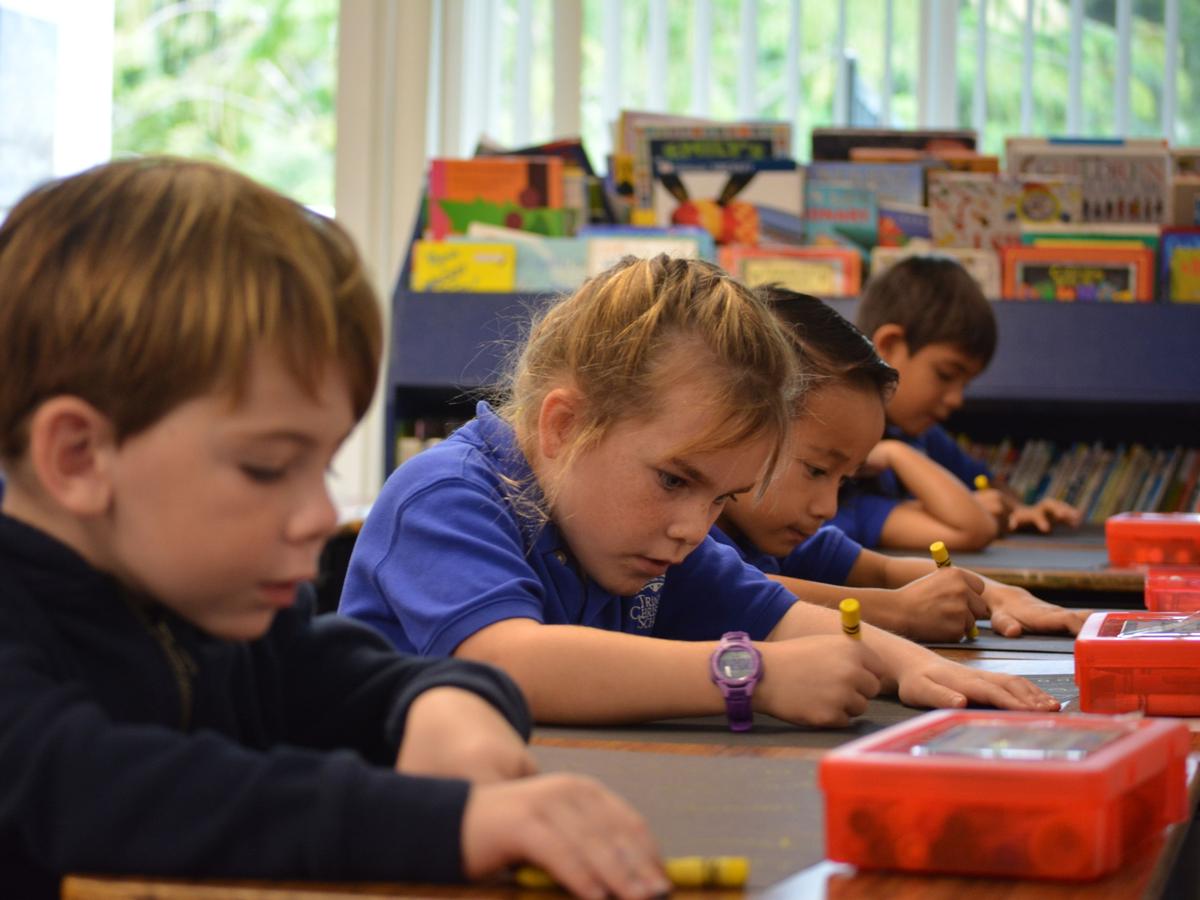
Why Trinity?
Written by Carol Awaya, parent and teacher
“Why Trinity?” If you’re like my family, this question resonates in your home throughout the school year as we evaluate each of our children’s’ strengths and needs. “Why Trinity?” What is your answer to that question? Is it because Trinity is the only fully accredited Classical Christian School in Hawaii? Is it because your child has found their niche in a sport that they play, or feel as if they are an integral part of their classroom or house? Is it because Trinity has an academic curriculum that challenges your child and prepares them for college? Maybe you appreciate that class sizes are small, ensuring your child has the appropriate amount of attention and they don’t have the opportunity to fall between the cracks. Maybe your love for Trinity is because of the sense of ohana and community that is fostered here, making the school an extension of your family. Maybe it’s because you know your child is loved by their teachers as they are in your home—even, when the love involves having to put limits on your child or imposing a consequence to shape their heart and grow their character. For my husband and me, all of this matters to us. But most of all, we are striving to raise children with Christ at the center of their lives and praying that they develop a heart of respect, humility, love for others, love for learning, become confident and articulate adults, and develop a heart that serves—much like what the “Profile of a Graduate” outlines.
"...It takes time, energy, discipline, consistency, persistence and hard work to develop an individual of such character. For example, if you want to lose weight, it involves a daily regimen of eating clean, working out, getting enough sleep, minimizing sugar intake, drinking plenty of water, and not giving up. Classical Christian education involves that sort of discipline."
So, what does Trinity’s “Profile of a Graduate” look like? It is a good reflection of what we would like our children to be one day: those who love God, love others, love to learn, think and communicate precisely, engage culture, delight in beauty and walk humbly. Can my husband and I accomplish this on our own? Not apart from the strength and grace of God nor without those who we surround our children with, day in and day out.
I think most of you would agree with me, that it takes time, energy, discipline, consistency, persistence and hard work to develop an individual of such character. For example, if you want to lose weight, it involves a daily regimen of eating clean, working out, getting enough sleep, minimizing sugar intake, drinking plenty of water and not giving up. Classical Christian education involves that sort of discipline. In the Grammar stage, students are memorizing a ton of information through chants and songs to build a bank of information and facts for one to pull from. In the Logic stage they are making sense of the information, putting an order to that information and are making connections. At the Rhetoric stage, while still gaining information, they can thoughtfully express their conclusions and convictions and are able to defend a senior thesis. This does not happen just because our children naturally grow and mature in that way. It takes practice, being intentional, moments of taking one step forward and three steps back, and persevering through challenges. The teachers here intentionally work on training our students to be critical thinkers and life-long learners. Scripture is memorized so that a “branding” takes place in our hearts and that a student can use God’s word to carry them through a challenging part of life or give hope to another in need. The elementary teachers are intentional about teaching through songs and chants because they know it helps the information “stick” so that they may be able to recall that information when they most need it. The school is intentional about training up well-spoken and articulate students via exordiums, our drama club and debate team. Each of these exercises are valuable in themselves, and consequently help develop skills necessary to interview for a job, make an oral presentation in college and help develop leadership skills.
Secondary teachers are looking for ways for our students to serve in our community and serve alongside our children. Our coaches continue to encourage the players to do all things for the glory of God and walk humbly even when they may have earned a Championship win. These are only a few examples of how the teachers and administration impact our children’s lives. As parents, we are grateful for this partnership we have at Trinity. As a teacher, I am also grateful that I have my colleagues supporting and helping me become a better parent and educator. As iron sharpens iron, so one person sharpens another. Proverbs 27:17
My husband and I don’t know what the future holds or what will become of our children when they are adults, but we are thankful we have partnered with Trinity to invest in our children’s lives and their hearts. Knowing that they know the Lord and have a relationship with Jesus is the best gift we could ask for. Now faith is confidence in what we hope for and assurance about what we do not see. Hebrews 11:1
Merry Christmas!
Recent Posts
Tag Cloud
5th grade academics administration all school all-school alumni athletics big island blog christian christmas class of 2018 classical classical christian classical christian education classical-christian-education classical-education college commencement community coram deo debate discipline donation drama educatio education educational philosophy electives elementary exhibition faculty fine art golf tournament graduates graduation hawaii hawaiian history head of school IB program kaiulani kupuna day leadership makahiki may day missions music office outreach parentsArchives
Looking for more? Read our Grand Tour blog and Athletics blog!

